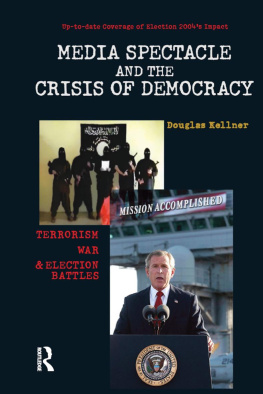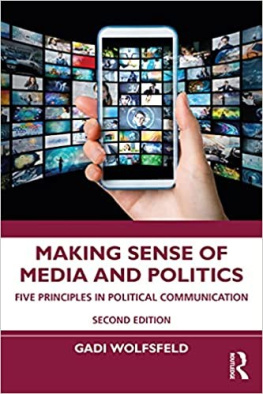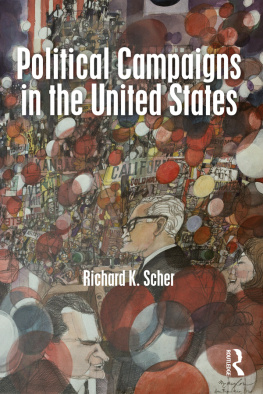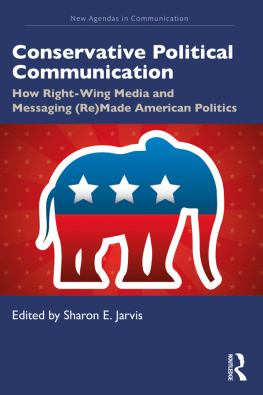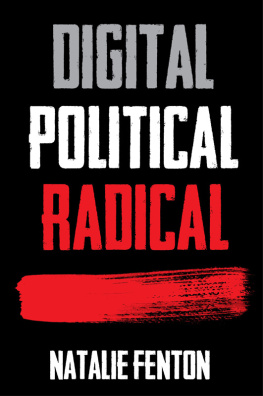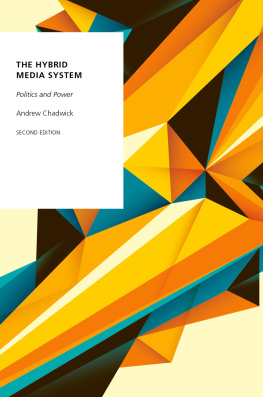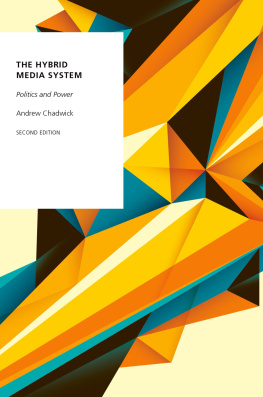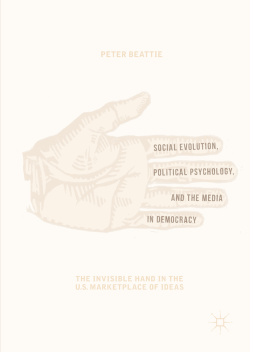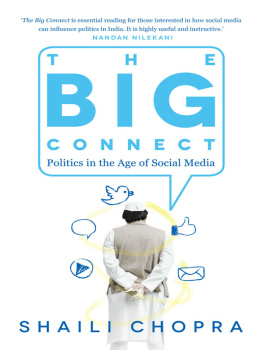Politics and the Media
Second Edition
Politics and the Media
Second Edition
Edited by Geoff Kemp, Babak Bahador,
Kate McMillan and Chris Rudd

Contents
Geoff Kemp
Geoff Kemp
Chris Rudd
Babak Bahador
Geoff Kemp
Geoffrey Craig
Babak Bahador
Babak Bahador
Chris Rudd
Chris Rudd
Maria Armoudian
Donald Matheson
Babak Bahador, Mark Boyd and Kate Roff
Bryce Edwards
Gavin Ellis
Kate McMillan
Joe Atkinson
Ashley Murchison
Sue Abel
Susan Fountaine and Margie Comrie
Preface to the Second Edition
The first edition of this book (2013) began with an observation that bears repeating, as much because of the rapid pace of media developments as despite it. Media continue to shrink the globe. But while the news media are central to politics the world over, few Western democracies have been as peripheral to introductory academic texts on the subject as New Zealand. Like old European atlases, todays media and politics textbooks treat New Zealand as terra incognita, drawing instead on examples from the United States, the United Kingdom and continental Europe, sometimes from Australia and Canada, and sometimes from developing nations in a de-Westernising impulse. Yet Aotearoa New Zealand has its own story to tell as a heavily mediatised Western democracy which relies on its communication connections with the world and on a media sphere shaped politically and structurally by one of the most extreme deregulatory experiments in the world.
Politics and the Media emerged from a conviction that a book was long overdue which combined insights from the rich literature on the global experience with those into the comparable and contrasting fortunes of New Zealands realm of media and politics. The authors wanted a form accessible to undergraduates but sufficiently challenging and interesting to engage others inside and outside Aotearoa and academia, and set out to meet the needs of students and raise the horizon of news from the end of the world. This second edition builds on the first by adding a number of chapters and updating and revising all the other chapters, particularly in the light of fast-moving developments in online and social media.
The book is divided into two parts, united by the core concern conveyed by the books title Politics and the Media, to which introduction. Chapters in the first part explore a number of key themes from an international or general standpoint, though inflected by New Zealand experience. The second part turns directly to New Zealand and key aspects of its politics-media context.
The first four chapters of closes with a chapter that further considers the changing role of media in terms of the power of online politics.
The second part of the book turns the spotlight on New Zealand, opening with a groundbreaking comparative survey of media coverage of recent election campaigns, and continuing with a chapter on the Dirty Politics campaign of 2014 in the context of the role of spin and PR in New Zealand politics. The next three chapters cover the political role (or roles) of the major traditional media, in turn newspapers, radio and television, followed by a chapter looking at online media in New Zealand politics. Two final chapters speak to New Zealand distinctiveness as well as to wider issues of diversity. The first considers Mori relations with media and representations of Mori issues in New Zealand politics. The final chapter explores news media coverage of women politicians in New Zealand. The examples of Mori and women confirm a theme of the book as a whole: the differences and likenesses of New Zealand against the background of media and politics as a Western, international and global concern. In this second edition, Politics and the Media again guides explorers across the terrain.
Acknowledgements
The book represents a collegial undertaking between teachers of politics and the media at four of New Zealands leading universities. The authors acknowledge the support of their institutions: Politics and International Relations, School of Social Sciences, University of Auckland; the School of Social and Political Science, University of Canterbury; the Department of Politics, University of Otago; and the School of History, Philosophy, Political Science and International Relations, Victoria University of Wellington.
Writing and editing a book incurs numerous debts, but, in an era of endless discussion of debt on an international scale, the authors and editors agreed it could be taken as read that families, friends, colleagues and students have their heartfelt thanks for assistance and support.
Finally, we thank all of the chapter authors for producing excellent pieces of work which we hope students will find as informative and stimulating as we did.
GK, BB, KM, CR
PART 1
Themes in Politics and the Media
CHAPTER 1
Media, Politics and Democracy
Geoff Kemp
Introduction: defining politics and media
I happen to be the first to welcome you to this book about politics and the media, but I want you to contribute some words as we begin exploring this important subject. I have a simple task for you. Write down a short sentence with the word media in it, somewhere near the beginning. Go on, any sentence will do it doesnt have to be profound, though it should be a full sentence rather than a txt msg.
Times up. Stop writing.
Hands up, those who wrote the media is... something or other. And hands up, those who wrote the media are... something. Well, some of you opted for is, some of you opted for are; both are correct, so full marks all round.
We have now made a start in defining our subject. The authoritative Oxford English Dictionary (OED) notes that some language purists object to the use of media as a singular noun rather than as the plural form of medium (which it defines as an intermediate agency, a channel of communication or expression). But the OED itself endorses todays common mixed usage of media as singular and plural. It defines media as the main means of mass communication, especially newspapers, radio and television, regarded collectively. As we know, the media involves a variety or plurality of mediums, companies, news outlets and views, both offline and online. Nevertheless, as the media academic Todd Gitlin remarks, something in our experience makes us want to address the media as it... we sense something like a unity at work (Gitlin 2002, p. 7).
This is intriguing because the ability of the word media to stand for both singular and plural entities is part of what might be called the mystery of media, intimately related to what might equally be called the puzzle of politics. We are all part of the puzzle, because we are simultaneously individuals and a part of the public. The OED notes that the public, like the media, can be singular or plural. It defines the public as people regarded collectively, in at least two ways first, as a readership or audience, and second, as the community or people as an organized body, the body politic, the nation, the state. The puzzle is how a multitude of individuals constitute and operate as a political community, a political public. The mystery is how a multitude of media sometimes seems to be not only a single, collective thing but as such might form a counterpart to the public and to government, informing and giving voice to the people as the rightful authority in modern democracy. These three entities the media, government, and the public are our subject.
Next page

